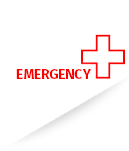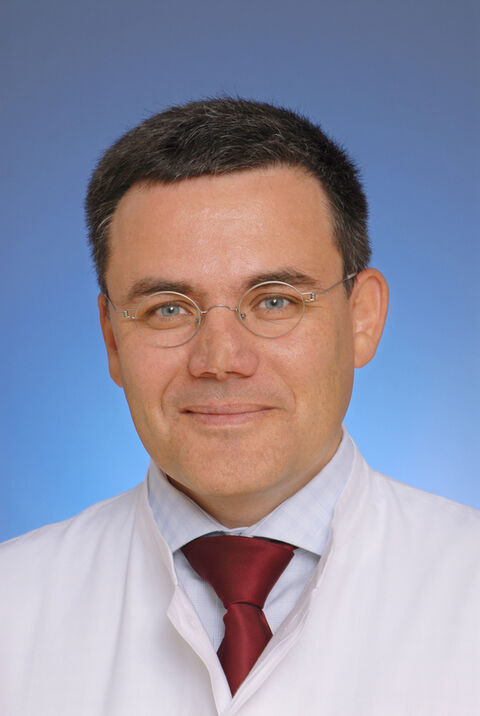Overarching Projects
B
Integrated Biobank JenaTeam: Bärbel von der Gönne
Kay Stötzer
Emanuel Ochs
Duration: 01.08.2010 - 31.07.2015
The Integrated Biobank Jena is a central resource for all CSCC clinical studies, and it increasingly includes experimental studies as well.
It is a centralized biobank resource that combines samples from multiple internal and external study sites, such as the CSCC, the Center for Innovation Competence Septomics, and the Sepsis Competence Network SepNet. Additional CSCC funding was invested in improving technology and increasing liquid nitrogen storage capacity. Today, the Integrated Biobank Jena features a scalable, fully-automated robotic storage and retrieval system that works at -80°C and allows the automatic handling, including cherry-picking and storage, of more than 500,000 tubes, all directly connected to a liquid handling workstation. The expanded storage capacity with the new liquid nitrogen storage containers adds additional capacity of > 360,000 tubes for high-quality, long-term storage at very low temperatures. Detailed SOPs and standards for sampling, intermediate storage, transport, splitting, pre-analytical processes, and long-term storage of samples have been implemented and validated to ensure the consistent high quality of sample material. Quality control procedures are certiἀed and approved in accordance with the DIN EN ISO 9001 certiἀed quality management system. All ethical, legal and social implications, quality management, information and communication technologies, and education issues comprehensively inform the biobank concept, and are available for researchers and clinicians to support them in conducting Clinical Trials and research.The Integrated Biobank Jena provides a central biobanking resource for a number of networks, large-scale multi-center sepsis trials, and local clinical trials. The sample size stored in the centralized biobank resource from the ongoing trials in the sepsis cluster is expected to grow over the next two to three years to more than 68,000 primary samples, resulting in approximately 478,000 aliquots of septic patients and appropriate controls. The Integrated Biobank Jena is a central resource for all CSCC clinical studies, and it increasingly includes experimental studies as well.The Integrated Biobank Jena provides a central biobanking resource for a number of networks, large-scale multi-center sepsis trials, and local Clinical Trials.
M
Midgerman Sepsis AllianceThe concept of the Midgerman Sepsis Alliance (MSA) consolidates four main aspects into one network: regional, scientific, quality, and educational. Each one represents an underlying idea to improve patient care during and after severe sepsis and septic shock.
Regionalization means offering a network to local partners. It also emphasizes the necessity of well-prepared interfaces and pathways among every partner involved in the diagnosis and treatment of sepsis, including general practitioners, emergency medical services, primary to tertiary hospitals, and rehabilitation.
Science in the context of the MSA is a two-sided approach. Partners are given the opportunity to join multi-centered CSCC trials and receive prompt information on the latest study results or guidelines. This facilitates quicker breakthrough of up-to-the-minute knowledge to bedside.
Quality stands for all our partners’ ongoing striving for perfection and commitment to life-long learning, both as individuals and together as an institution. Participants can take advantage of offers like peer visits, benchmarking and exchanges with other experts.
Education is dedicated to fostering awareness of sepsis as a major threat in modern medicine, and to the early recognition and fast, guideline-adherent treatment for individual patient.
As sepsis can occur in nearly any field of medicine and any phase of medical treatment, it is vital to develop training concepts for medical and nursing students as well as experienced physicians and nurses. At the first meeting in the spring of 2012, 80 partners from all three Midgerman states (Saxony, Saxony-Anhalt, and Thuringia) participated in the founding phase of the MSA. Five workgroups have already been started.
P
Process ControllingPrincipal Investigator: Prof. Dr. Johannes Ruhland
Team: Dipl.-Wirt.-Inf. Stephan Tiesler
Dipl.-Wirt.-Inf. Thomas Fischer
Duration: 01.08.2010 bis 31.07.2015
The Problem
It is the aim of the project to implement an independent process controlling to document and evaluate the implementation of new structures and processes. Furthermore, the project develops methods, processes and systems for information, planning and control of innovative clinical research organizations.
Results so far
As a first step, we have modelled important business processes of the CSCC to provide transparency amongst different actors in the new organization. Furthermore, we have specified key figures for clinical studies in a joint IFB assessment committee. The design of appropriate operating figures is a comprehensive problem in clinical research. Critical processes, such as planning and execution of clinical studies, can be emphasized with quantitative governing factors, because these processes are relatively stable due to regulatory requirements. We have developed a database as well as a management report, which provides an in depth view of each clinical study of the CSCC.
Our approach to measure organizational change, collaboration as well as scientific impact is based on a temporal analysis of the scientific network of the CSCC. This enables us to examine the structure of relationships between different persons and how they are changing over time from different points of view. We already developed and implemented a prototype, which is able to extract several relationships from PubMed as well as other databases.
Contact
Friedrich-Schiller-Universität Jena
Lehrstuhl für Wirtschaftsinformatik
Carl-Zeiss-Straße 3
07743 Jena
S
Sepsis Data Unit
Principal Investigator: Prof. Dr. Markus Löffler
Team: Dr. Frank Meineke, Dr. Christoph Engel, Florian Rißner, M. Löbe, S. Stäubert, S. Kropf, C. Porzelius, Lars Voitel
Duration: 01.08.2010 - 31.07.2015
The Problem
The core facility provides the basic IT-infrastructure and the basic support for designing and initiating patient related prospective interventional, diagnostic, or prognostic clinical trials. This includes setup and operation of a web-based clinical data management system, tools for a stringent ID-Management and a comprehensive research database able to integrate data from the Jena hospital information system. Regarding clinical trial design, we provide basic support at all levels in designing and initiating trials.
Results so far
Based on a detailed analysis of the necessary infrastructure, we built up a detailed overall integration model based on processes, components and interfaces. A comprehensive data privacy and data security concept guarantees that capture, storage and retrieval will be performed according to the legal requirements for data security. We developed a comprehensive and flexible web-based registry tool for identity-management for PID-registration, SIC-generation and CDMS subject creation. We decided to use OpenClinica as Clinical Data Management Systems (CDMS). OpenClinica features CDISC ODM file format, web-services and an Excel based electronic Case Report Form (eCRF) specification. We developed tools and methods, e.g. to generate annotated CRFs and to incorporate validation rules. The eCRFs for the studies Medusa, Alerts, Eidecs and the Sepsis Registry have been created. Training courses have been held and data entry has started. NeuroSOS-Nerve/NeuroSOS-CIP and NeuroPain started in early June 2012. Action, Osarst and Smooth are in late release phase.
The SDU biometrician supported the investigators in the process of designing and initiating the trials including biometric design, the documentation items and in endpoint discussions and performed intermediate analyses, e.g. Medusa. The server-infrastructure was set up in Leipzig within the audited data center of the IMISE/ZKSL. All components (CDMS, IFB-Registry, ID-Management, Research Datawarehouse i2b2, backend Databases) run on virtual machines and will be transferred stepwise to Jena by 2013. i2b2 allows overarching data queries without deeper knowledge of data structures or query languages. An additional datamart system supports a relational view on all data aggregated by the SDU. Trial data and samples of Jena HIS data can be loaded into datamart and datawarehouse via ETL-tools. Thus making combined analysis, e.g. Alerts with corresponding SAP risk indicators, possible.
Contact
Universität Leipzig
Institut für Medizinische Informatik, Statistik und Epidemiologie (IMISE)
Härtelstraße 16-18
04107 Leipzig
Principal Investigator: Prof. Dr. Jochen Gensichen
Team: Dr. Konrad Schmidt, Katrin Ludewig, Susan Kerth, Florian Rißner, Viola Bahr, Frank Martin Brunkhorst
Duration: 01.10.2010 - 31.07.2015
The Problem
Establishing worldwide sepsis registries is a central demand of the Global Sepsis Alliance. The few already existing registries have been used only for surveillance of in-hospital mortality. We started a population-based registry for guiding also quality improvement in sepsis after care, based on information of primary care physicians.
Results so far
The Jena Sepsis Registry will be a prospective registry for patients with severe sepsis or septic shock. Since December 2010, all ICU patients were screened for inclusion criteria. In the following, baseline data on ICU- and hospital care have been extracted from patient records at ICU discharge. The primary outcome is all-cause mortality. Further, date and place of death, site and source of infection, APACHE-II-Score, microbiological data, diagnostic and therapeutic procedures, ICU- and hospital days are documented, using open source clinical trial software (OpenClinica). Follow up for the primary outcome will be collected from the primary care provider at 6, 12, 24, 36, 48 and 60 months after ICU discharge by abstracting patient records. Integrating further health status information into follow up data is planned. Preliminary Results / Feasibility:Up to now (May 31th 2012), we identified and enrolled 582 patients for baseline data. Through a pilot phase (January-June 2011), we completed six month follow-up with 95,6% of the 205 patients who were eligible for initial follow-up. Further follow up data collection is in progress. Pilot experience demonstrates the feasibility of enrolling and following up patients with high completion rates and high data quality.
Contact
Tel. +49 (0)3641 - 9 39 58 00
Universitätsklinikum Jena
Institut für Allgemeinmedizin
Bachstraße 18
07743 Jena



